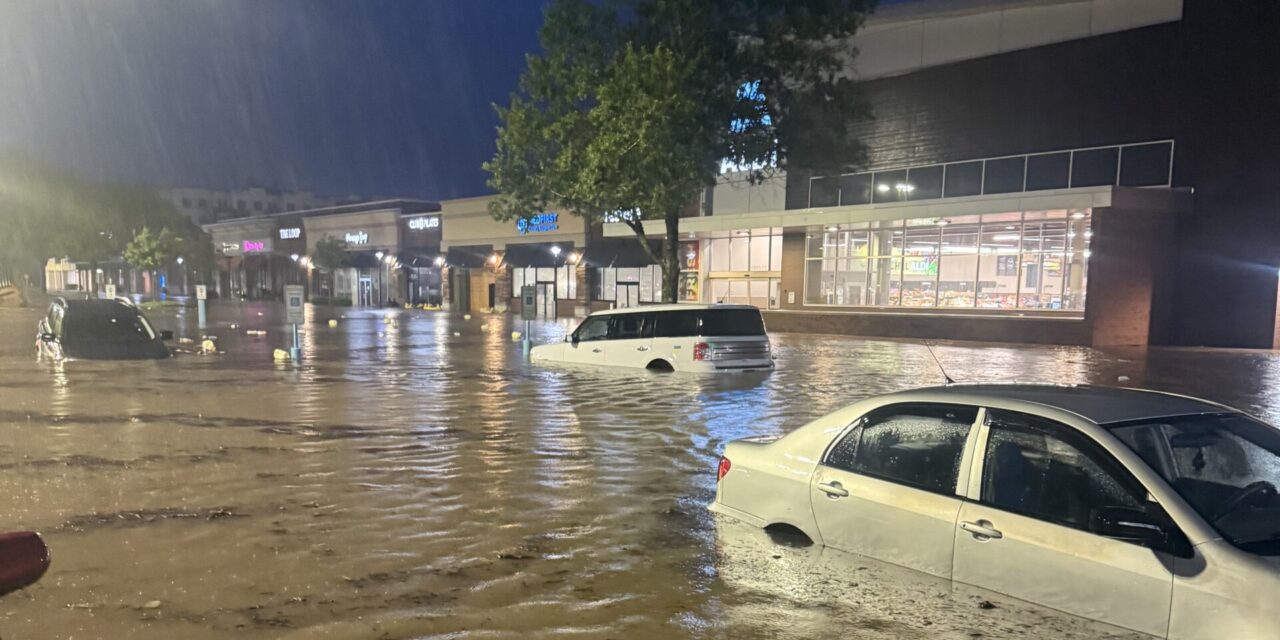Chatham County, NC, is grappling with the aftermath of severe flooding following Tropical Depression Chantal, which brought record rainfall, power outages, and significant disruptions to the region.
Chatham County NC Endures Historic Flooding: Key Facts
Date: Sunday night into Monday morning, July 6-7, 2025
Location: Central North Carolina, with Chatham County among the hardest hit
Event: Tropical Depression Chantal delivers up to 10 inches of rain, causing widespread flooding
The Storm’s Impact on Chatham County NC
Tropical Depression Chantal made landfall as a tropical storm in South Carolina before moving north and weakening, but not before dumping massive amounts of rain on Chatham County NC and neighboring areas. The storm’s slow movement contributed to the high rainfall totals, overwhelming local waterways and infrastructure.
Major consequences included:
- Flooded roads and highways: Hundreds of roads were submerged, making travel dangerous and trapping drivers.
- Power outages: Tens of thousands of residents lost electricity as trees and power lines were brought down.
- Water rescues: Emergency crews conducted multiple rescues, particularly in low-lying neighborhoods and apartment complexes with histories of flooding.
- Property damage: Homes and businesses, including popular local establishments, suffered significant water damage.
- Fatality: Sadly, one resident from Pittsboro, Chatham County, lost her life after driving into floodwaters.
Also Read | Lottery Tickets for July 7: Powerball Numbers Soar to $203 Million Jackpot
Emergency Response and Community Efforts
Local officials and first responders acted swiftly to manage the crisis in Chatham County NC. Their efforts included:
- Rescuing stranded residents from flooded homes and vehicles.
- Coordinating with state agencies to provide additional resources and support.
- Declaring states of emergency to expedite aid and recovery processes.
- Setting up temporary shelters for those displaced by rising waters.
Key emergency measures:
- Deployment of search and rescue teams
- Road closures and detours for public safety
- Communication updates via county websites and social media
Ongoing Challenges and Recovery Steps
As the floodwaters recede, Chatham County NC faces a lengthy recovery process. Residents and officials are now focused on:
- Assessing infrastructure damage: Inspecting roads, bridges, and utilities for safety and repairs.
- Restoring power: Utility crews are working around the clock to bring electricity back to affected areas.
- Supporting displaced families: Local organizations and the county government are providing shelter, food, and essential supplies.
- Preventing future flooding: Conversations about infrastructure improvements and flood mitigation are gaining urgency.
How Chatham County NC Is Moving Forward
The community spirit in Chatham County NC remains strong, with neighbors helping neighbors and local businesses pitching in to support recovery efforts. Officials are urging residents to stay informed through the Chatham County government website and to follow safety advisories as cleanup continues.
Community resources:
- Chatham County News Portal: For the latest updates and emergency information (Chatham County News)
- Local Events and Support: Ongoing initiatives, such as food drives and public meetings, are being organized to assist those in need.
Recent News and Upcoming Events in Chatham County NC
Despite the flooding, life in Chatham County NC continues with resilience. Here are some upcoming events and recent developments:
| Event/Update | Date/Location |
|---|---|
| Chatham County Board of Commissioners Meeting | July 10, 2025, Pittsboro |
| Grand Opening of New Arts Center | July 17, 2025, 964 East Street, Pittsboro |
| Community Library Programs | Throughout July, various locations |
Stay connected with the Chatham County News site for ongoing updates and community resources.
What Residents Should Do Next
- Stay alert for further weather advisories and road closures.
- Report damage to local authorities to help prioritize recovery efforts.
- Support local relief efforts by volunteering or donating to trusted organizations.
- Attend public meetings to stay informed about recovery plans and community needs.





Be First to Comment